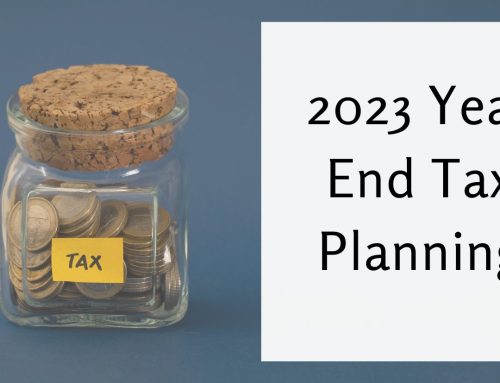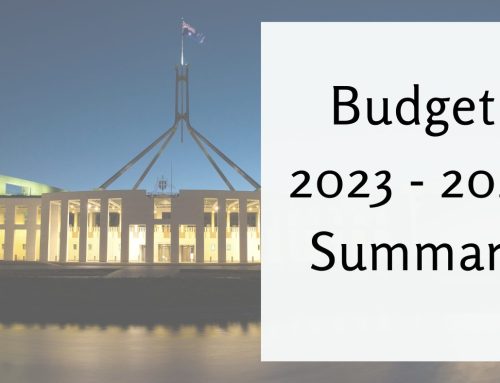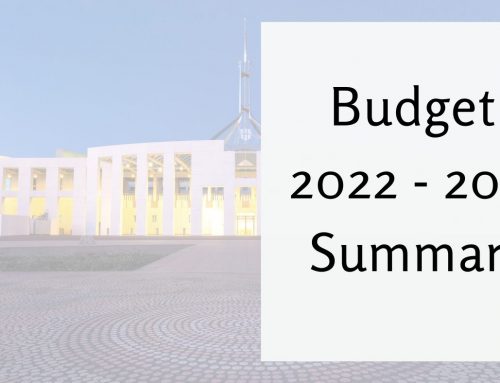The 2017/18 Federal Budget was almost a non-event. There were attempts to assist with housing affordability, minor changes to taxation issues, a levy on bank deposits (which the customer will end up funding rather than the banks) and a focus on developing infrastructure across the country. The following summary is a summary of the various components that may have an impact on you or your family.
Personal Taxation
The Government reinforced the following:
1. Commitment to end the 2% budget deficit levy on 30 June 2017 that is levied on taxpayers whose taxable income is greater than $180,000.
2. Maintain 2017 marginal tax rates as follows:

3. From 1 July 2019 the Medicare Levy will increase from 2% to 2.5%
4. Tertiary students with HELP debts will be affected as follows:
- From 1 July 2018 students with HELP debts will have to begin to repay their HELP debt where their taxable income exceeds the lower threshold amount of $42,000 (down from $55,874). The amount of the annual repayment will start at 1% per annum and steadily increase to a maximum repayment of 10% per annum when their taxable incomes exceed $119,882.
- From 1 July 2019 the indexation of the HELP debt will be linked to the Consumer Price Index (CPI) rather than the Average Weekly Earnings (AWE) index
- The cost of education for tertiary students will increase by 7.5% from 1 July 2018 with the 7.5% increase phased in over a four year period.
5. Investment Properties
- Restrictions on Depreciation of Plant & Equipment
The property market and housing affordability has given rise to much discussion over the past few years. In the Budget the Government made a series of announcements and measures that it will utilize in order to try and assist housing affordability for first home buyers. Throughout these discussions negative gearing and investment properties has been on the radar. As such, it should come as no surprise that they have attempted to restrict deductions relating to investment properties. In one respect the measure in the Budget was a surprise as most believed that interest deductibility on investment properties would be the most obvious expense to attack.
In the Budget the Government announced that they will limit depreciation deductions on plant and equipment (eg: dishwashers, hot water services, ceiling fans, etc) to outlays “actually incurred by investors” in residential real estate properties. This means that from 1 July 2017 you will only be able to claim depreciation on plant and equipment if you have acquired that depreciable asset during your ownership period. A subsequent purchaser will not be able to claim the depreciation on items that you acquired during your ownership period.
There are to be grandfathering rules such that depreciation on plant and equipment that formed part of a residential investment property that you owned as at 9 May 2017 (including any property that you contracted to acquire on or before 9 May 2017) will continue to be deductible until the asset has been written off or until you no longer own the property.
No Deduction Allowed for Travel Expenses
- With effect from 1 July 2017, travel expenses related to inspecting, maintaining or collecting rent for a residential investment property will no longer be tax deductible.
CGT Discount to increase to 60% on investment in Qualifying Affordable Housing
- The CGT discount will increase from 50% to 60% from 1 January 2018 for investors who invest in Qualifying Affordable Housing. Eligibility for qualifying affordable housing will include:

If you would like further information regarding how the Federal Budget will impact you please contact the office 03 9629 1433





